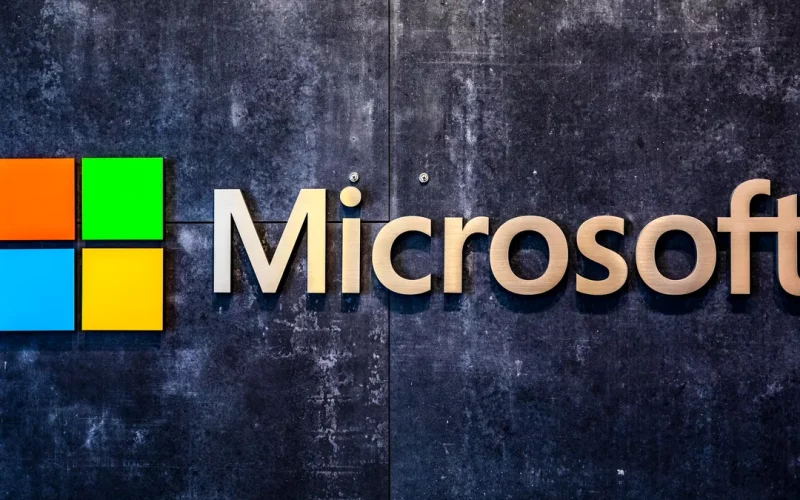In recent years, the tech industry has faced increasing scrutiny from regulators worldwide. One significant development is the European Union’s antitrust charges against Microsoft over its integration of the Teams communication platform with its Office suite. This article delves into the details of the charges, the context leading up to them, and their implications for Microsoft and the broader tech industry.
Background of the Case

Microsoft Teams, a collaboration tool for chat, video conferencing, and file sharing, was launched in 2017. It quickly became a key component of Microsoft’s Office 365 suite, offering seamless integration with other Microsoft services. However, this integration raised concerns among competitors and regulators. The European Union’s antitrust watchdog, the European Commission, launched an investigation following complaints from rivals, most notably Slack, a competing workplace messaging app.
Details of the Antitrust Charges
The European Commission’s charges against Microsoft revolve around two main points:
- Bundling Practices: The Commission alleges that Microsoft’s practice of bundling Teams with its Office suite gives it an unfair advantage over competitors. By making Teams readily available to Office users, Microsoft is accused of stifling competition and limiting consumer choice.
- Market Dominance: Microsoft’s dominant position in the office productivity market is another focal point. The Commission argues that leveraging this dominance to promote Teams could hinder innovation and competition in the workplace communication market.
Historical Context
Microsoft has a history of antitrust issues. In the late 1990s and early 2000s, it faced similar charges for bundling its Internet Explorer browser with the Windows operating system. The EU’s current charges against Microsoft echo these past concerns, highlighting ongoing issues with the company’s business practices and their impact on market competition.
Impact on Microsoft
The charges pose significant risks for Microsoft, both financially and reputationally:
- Financial Penalties: If found guilty, Microsoft could face substantial fines. EU antitrust fines can reach up to 10% of a company’s global revenue, potentially amounting to billions of euros for Microsoft.
- Operational Changes: Beyond fines, Microsoft may be required to alter its business practices, such as unbundling Teams from the Office suite or offering more favorable terms to competitors.
- Reputational Damage: Antitrust charges can harm a company’s reputation, affecting its relationships with customers, partners, and regulators. For Microsoft, which has worked to rebuild its image since its earlier antitrust issues, this could be a significant setback.
Comparative Analysis: Microsoft vs. Competitors
| Aspect | Microsoft Teams | Slack | Zoom | Google Workspace |
|---|---|---|---|---|
| Integration | Seamless with Office 365 | Integrates with various third-party apps | Limited integration with some apps | Strong integration within Google apps |
| Market Share | Dominant due to Office 365 bundling | Significant but smaller than Teams | Gained popularity during the pandemic | Popular among Google users |
| User Base | Extensive, leveraging Office 365 users | Strong in tech and startups | Broad, especially in education and SMEs | Diverse, strong among Google users |
| Features | Comprehensive, continuous updates | Focused on messaging and channels | Strong in video conferencing | Balanced, strong collaboration tools |
| Antitrust Concerns | Bundling with Office 365 | Few, generally considered a challenger | Few, considered a challenger | Few, but closely watched by regulators |
Implications for the Tech Industry
The charges against Microsoft are part of a broader trend of increasing regulatory scrutiny in the tech sector. Governments and regulatory bodies worldwide are becoming more vigilant in monitoring the practices of tech giants. This shift has several implications:
- Regulatory Environment: Companies can expect stricter regulations and more frequent investigations. Compliance with antitrust laws and other regulations will become more critical.
- Market Dynamics: Increased scrutiny can alter market dynamics, potentially leveling the playing field for smaller competitors. Companies that rely on bundling or leveraging dominance in one market to promote other products may need to rethink their strategies.
- Innovation and Competition: While regulatory actions aim to promote competition and innovation, they can also pose challenges. Companies may need to balance compliance with maintaining their competitive edge and continuing to innovate.
Analysis Table: Key Points of the EU Antitrust Charges
| Key Points | Description |
|---|---|
| Bundling Practices | Microsoft’s integration of Teams with Office 365 gives it an unfair advantage. |
| Market Dominance | Leveraging its dominant position in the office productivity market. |
| Impact on Competitors | Stifling competition and limiting consumer choice. |
| Potential Penalties | Financial fines, operational changes, and reputational damage. |
| Historical Precedents | Similar to past issues with Internet Explorer bundling. |
Microsoft’s Defense
In response to the charges, Microsoft has argued that the integration of Teams with Office 365 benefits consumers by providing a seamless experience and enhancing productivity. The company also points to the competitive nature of the collaboration tools market, highlighting the presence of strong competitors like Slack, Zoom, and Google Workspace. Microsoft’s defense emphasizes the value delivered to customers and the innovation driven by its integrated approach.
Future Outlook
The outcome of the EU’s investigation will have far-reaching consequences for Microsoft and the tech industry. If the Commission rules against Microsoft, it could set a precedent for how tech giants are allowed to bundle products and leverage market dominance. Companies across the industry will be closely watching the case, as it may influence future regulatory actions and business practices.
Comparative Table: Potential Outcomes and Their Implications
| Outcome | Implications for Microsoft | Broader Tech Industry Impact |
|---|---|---|
| Fines and Penalties | Significant financial cost | Increased caution among tech giants |
| Required Operational Changes | Possible unbundling of Teams from Office 365 | Potential changes in how products are bundled and marketed |
| Reputational Impact | Damage to Microsoft’s public image | Heightened awareness of antitrust issues |
| Market Dynamics | Potential opening for competitors | Increased competition and innovation |
| Regulatory Precedent | Influence on future regulatory actions against tech giants | Greater regulatory scrutiny across the industry |
The EU’s decision in this case will serve as a critical reference point for future antitrust investigations and actions, shaping the landscape of the tech industry for years to come.
Conclusion
The European Union’s antitrust charges against Microsoft over the integration of Teams with its Office suite represent a significant development in the ongoing regulation of the tech industry. The case highlights the challenges and complexities of balancing competition, innovation, and consumer choice in a rapidly evolving market. As regulators continue to scrutinize the practices of tech giants, the industry must adapt to a new landscape where compliance and fair competition are paramount.












